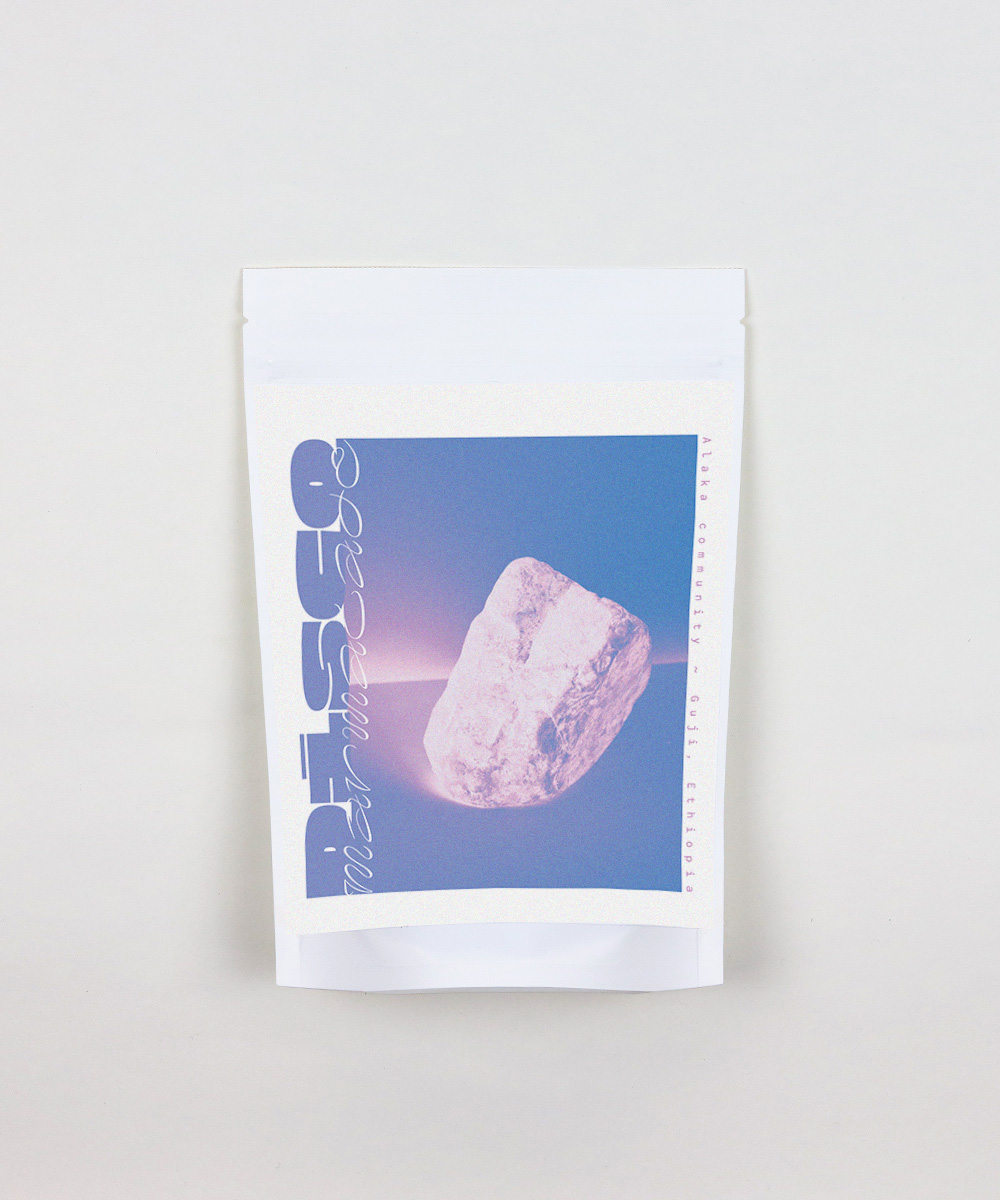Disco Marmalade – local landrace from Alaka community in Guji, Ethiopia (2022)
US$0.00
Producers: smallholders around Alaka delivering cherry as part of METAD’s out-grower’s program
Origin: Guji, Ethiopia
Varieties: Guji local landraces
Processing: Washed
Exporter: METAD
Tasting notes: lemon verbena, black tea, marmalade
Harvest: Dec 2021- Jan 2022
With lemon verbena, bergamot, and silky black tea, this washed processed landrace lot is grown by smallholders associated with the Alaka community in Guji, Ethiopia. METAD’s Hambela estate processes the fruit by depulping, and fermenting the remaining bits of fruit off the seeds by submerging in water tanks, visually reminiscent of a vat of effervescent kombucha ✨
Producers
This lot from Alaka is the result of the meticulous work of farmers who are part of the outgrower’s program with METAD in the Guji zone in the south of Ethiopia.
In addition to Hambela, their estate farm, the Adinew family who owns METAD, a coffee exporting company, also have programs where they will buy coffee fruit from out-grower communities and process the lots.
Alaka represents a community of coffee out-growers: Small private farms that are too small to be able to realistically process their coffee themselves. Previously, this community didn’t have as many points of access to the international market – Especially since typical private washing stations (who buy coffee fruit to process on their own equipment to resell/export) don’t give a second payment. This is a payment that happens once the final export price of a coffee is known, and growers receive a sort of dividend. METAD / Hambela Estate is a rarity since they pay out that second payment to their outgrower partners.
Varieties
These small private farms grow varieties that are indigenous to the area of Guji, known collectively as landrace varieties.
Processing
Once cherry is delivered by smallholders from the Alaka community, METAD separates their lots and processed this coffee in a washed manner, traditional in Ethiopia the coffee is depulped and fermented underwater for anywhere from 36-72 hrs, allowing microbes to propagate dropping the ph in the tank so the sticky mucilage layer comes off during the next step, washing the coffee in channels. Finally the coffee is dried on raised beds for 7-10 days.
Backstory
Our two latest releases in October are from Guji (Kirite aka Disco Marmalade) and Gedeb (Beriti aka Strawberry Sundae) respectively, & have something pretty neat in common – They are both lots from outgrower communities that work with METAD, who have a remarkable history as a company, producer and exporter in Ethiopia.
Water
We brew our coffees with Municipal water out of the tap out of our roastery in Maple Ridge, and Municipal tap water at our home in Vancouver to brew and do QC with. Both municipal sources are very soft, low ppm water compositions with no more than 30ppm of total dissolved solids.
We often brew with 2x diluted Third Wave Water of around 60-70ppm (0.16g.-0.2g./L of TWW powder)
and enjoy the brews from that water just as much as our own.
Brewing
We make an effort to taste our coffees in a variety of ways, but mostly use cupping, 22g. V60 brews, and 15g. Kalita 155 brews as our main ways of quality control and dialling in roast profiles. Our filter recipes can be found in our Journal here: Kalita 155, V60
We uses an EK43 with SSP cast burrs, Fellow Ode with SSP Multipurpose burrs, and Comandante grinders.
Espresso
We have an open-minded and flexible perspective on brewing coffee and believe that there should be numerous ways to make a tasty cup of coffee. While we are focussed on filter brewing and find it to be our personal preference and consider it the most democratic methods of preparation, there’s no rules that limit you to exploring these as espresso too.
Our espresso set-up is a Decent DE1PRo and a Niche Zero
